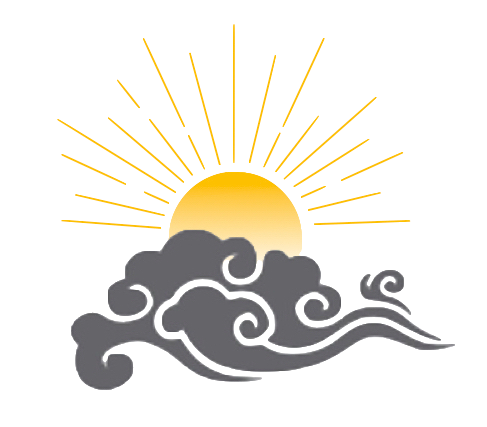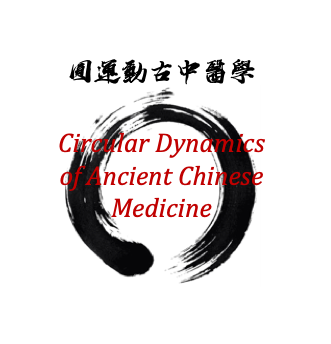The highest physician treats the kingdom, the competent physician treats the person, the lowest physician treats the disease. Drawing on the six phasic model of the Shanghan Lun, specifically that of Jueyin pathology, this post is an effort to come to terms with the many unprecedented events continuing to unfold here in America through the eyes of a Chinese medical practitioner. Please note that this article examines some difficult questions that may be challenging for some readers.
Read MoreRoughly one in twelve Americans is currently living with some form of autoimmune dysfunction, 75% of whom are women. General thyroid dysfunction and Hashimoto’s thyroiditis are common clinical presentations that I have helped patients to normalize both in terms of their bloodwork indicators and their own sense of well-being. So what does Chinese medicine have to say about these autoimmune conditions and how can lifestyle changes contribute to the healing process? Start by calming the wind...
Read MoreTo better appreciate the role of the macro-level influences on patient presentations, Chinese physicians of the past paid close attention to the shifting dynamics of environmental factors commonly referred to as wu yun liu qi(五運六氣wǔ yùn liù qì). This article takes a closer look at the overlay of key environmental factors from last November through the present according to the ancient system of wu yun liu qi in order to shed some light on the mechanism of the current outbreak of Covid-19, effective herbal strategies for its treatment and most importantly, its prevention.
Read MoreAnnotated and commented on more than any other classical text (possibly including even the Neijing), accomplished physicians from Sun Simiao to Ye Tianshi have all emphasized the role of Zhang Zhongjing’s Han dynasty master work as the cornerstone of all clinical practice. Much like human beings, these classical texts possess body, energy and spirit that to remain fully intact depend equally as much on the spoken instruction and living example of master practitioners as it does on the physical record of the written word. Based largely on a ten-year clinical dialogue with my mentor Dr. Li Xin, this work-in-progress represents an attempt to make a small piece of the rich transmission of practical Shanhan knowledge available to a wider audience of practitioners.
Read MoreIntroductory chapter from Zheng Qinan’s Qing dynasty text 醫法圆通 Integrated Mastery of Medical Strategies discussing the fundamental nature of shanghan. Zheng Qinan is widely regarded as one of the great Shanghan experts of the last several hundred years and was a principle transmitter of the 火神派 huǒshénpài Fire Spirit lineage of Chinese medicine. His three books are a key access point for students of the Shanghan Lun to enter into a deeper understanding of the text as a map of the qi dynamics of the human body.
Read MoreReturning for my fouth year as an undergraduate student in the Department of Acupuncture and Tuina of the Beijing University of Traditional Chinese Medicine this past week, I have once again come face to face with the abysmal state of institutional TCM education here in modern China. In an audacious letter to President Hu Jintao, Lü Binkui, one of the founders of the modern TCM curriculum, expressed his frustrations with the present condition of state oversight. He eloquently gives voice to the dismay that I have heard expressed in many circles (far removed from academia) here in China.
Read MoreThis essay, originally written by my mentor Dr. Li Xin for inclusion in a 2015 volume of Dr. Song’s clinical case studies, captures the essence of the “light, soft” methods of the Wenbing that he learned from Dr. Song. As a direct student of Dr. Kong Bohua, one of the “Four Great Beijing Masters”, Dr. Song devoted his life to the investigation of the full breadth and depth of Chinese medicine, maintaining his regular clinical practice at the Beijing Pediatric Hospital well into his 90’s. He was recognized as one of the “Hundred Great Chinese Medical Physicians” in 1990 and as a national living treasure by the Ministry of Health for his lifetime contribution to patient care and clinical education before his passing in 2018. He is remembered by his students and colleagues as a true embodiment of Sun Simiao’s Spirit of the Great Physician.
Read MoreThroughout written history, China has referred to itself and its empire as 中国 Zhongguo, the Middle Kingdom. The inhabitants of the Middle Kingdom are the descendants of a great mythological figure known as 黄帝 Huangdi, the Yellow Emperor. Coming to the throne at a very young age, legend has it that the boy emperor was endowed with a miraculous power to converse with the immortals through dream.
Read MoreThose who would like to study Chinese medicine must first understand the reasoning for the names of the twelve meridians; in order to understand the reasoning for the names of the twelve meridians, one must first understand the principles of yin and yang, five elements and six environmental factors; in order to understand the principles of yin and yang, five elements and six environmental factors, one must first understand the 24 solar terms as the circular movement of the heat from the sun as it strikes the surface of the earth and descends, stores, rises or expands.
Read MoreThose who would like to study Chinese medicine must first understand the reasoning for the names of the twelve meridians; in order to understand the reasoning for the names of the twelve meridians, one must first understand the principles of yin and yang, five elements and six environmental factors; in order to understand the principles of yin and yang, five elements and six environmental factors, one must first understand the 24 solar terms as the circular movement of the heat from the sun as it strikes the surface of the earth and descends, stores, rises or expands.
Read MoreThose who would like to study Chinese medicine must first understand the reasoning for the names of the twelve meridians; in order to understand the reasoning for the names of the twelve meridians, one must first understand the principles of yin and yang, five elements and six environmental factors; in order to understand the principles of yin and yang, five elements and six environmental factors, one must first understand the 24 solar terms as the circular movement of the heat from the sun as it strikes the surface of the earth and descends, stores, rises or expands.
Read More










